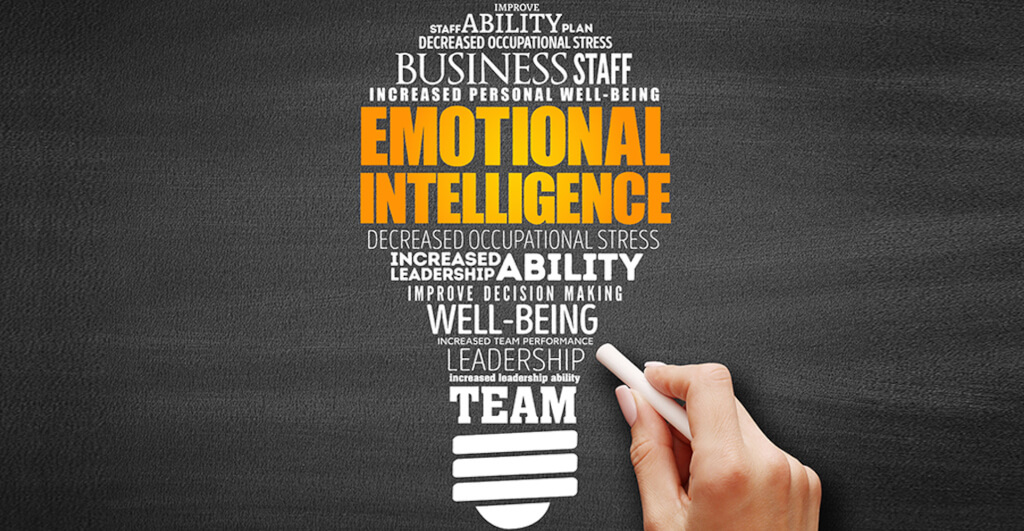AI isn’t just another workplace tool, it’s a defining factor in who stays ahead and who gets left behind. For years, people assumed AI was just about automation, helping companies cut costs by replacing repetitive tasks. But that’s only a fraction of the story. Today, AI is shaping decision-making, improving efficiency, and driving business strategy in ways that go far beyond simple automation. The professionals who understand how to use AI aren’t just keeping up—they’re securing better roles, commanding higher salaries, and future-proofing their careers while others scramble to catch up.
And this isn’t just happening in tech. AI is already reshaping business, marketing, HR, healthcare, finance, and nearly every other field. According to Gartner, AI will disrupt nearly every industry by 2025, forcing professionals to either adapt or risk becoming obsolete. Imagine a sales team that closes deals faster using AI-driven customer insights, an HR leader who uses AI-powered analytics to reduce turnover, or a healthcare professional who speeds up diagnostics with machine learning. These aren’t futuristic ideas—they’re happening right now. And yet, many professionals still hesitate, believing AI is too technical or too complex for them to learn.
That’s exactly the gap AILIT’s Executive Certificate in Applied AI is designed to close. This isn’t about learning to code or building algorithms from scratch—it’s about understanding how AI works in your industry and applying it effectively. Whether you’re a marketing professional looking to personalize customer engagement, an operations manager who wants to optimize workflows, or an executive making data-driven strategic decisions, AILIT makes AI accessible, practical, and tailored to your career goals.
How Professionals Are Using AI Today
AI isn’t just about efficiency—it’s about getting ahead in your career by making smarter, faster, and more strategic decisions. While some people still think of AI as a future concept or a tool reserved for tech professionals, applied AI is already a daily necessity across industries. From sales and operations to HR and finance, professionals who know how to use AI aren’t just working more effectively—they’re positioning themselves as leaders in their fields.
Sales Managers, Closing More Deals
For sales teams, time is money. The longer it takes to qualify leads, follow up with prospects, and analyze sales data, the fewer deals get closed. AI is changing that by taking the guesswork out of lead scoring. Instead of relying on intuition or manually sorting through CRM data, sales managers now use AI-driven predictive models to identify which prospects are most likely to convert.
With AI scanning customer interactions, buying patterns, and behavioral data, sales teams can prioritize high-value leads, craft personalized outreach, and automate follow-ups at the perfect moment. This not only increases conversion rates but also frees up hours of manual work, allowing sales professionals to focus on relationship-building and strategy rather than data crunching.
Operations Leaders, Cutting Waste and Increasing Profits
In logistics and supply chain management, predictability is everything. Inventory shortages, overstocked warehouses, and inefficient shipping routes can cost companies millions. AI-driven forecasting tools are changing the game by analyzing historical data, real-time demand fluctuations, and even external factors like weather patterns or geopolitical events.
Operations leaders who integrate AI into supply chain management can reduce waste, lower costs, and improve delivery timelines. AI-powered automation also streamlines warehouse management, optimizing stock levels and predicting maintenance needs before breakdowns happen. The result? Fewer disruptions, higher efficiency, and stronger profit margins.
HR Professionals, Retaining Top Talent
HR is no longer just about hiring and payroll—it’s about understanding workforce trends and proactively managing employee engagement. AI-powered analytics are helping HR leaders predict which employees are at risk of leaving, pinpoint workplace challenges, and develop data-backed strategies to improve retention.
By analyzing employee feedback, performance metrics, and even sentiment from internal communications, AI can identify patterns that humans might miss. If a department is seeing a spike in disengagement, AI can highlight early warning signs, allowing HR to step in before turnover becomes a problem. AI-driven recruitment tools also help HR teams sift through thousands of resumes in minutes, ensuring the best candidates aren’t overlooked due to outdated manual screening processes.
Marketing Strategists, Automated Content Creation
Marketing is no longer about broad guesses and gut instincts—AI has made it a data-driven science. Marketers now use AI-powered tools to analyze consumer behavior, predict trends, and create personalized campaigns that reach the right audience at the right time. AI automates tasks like A/B testing, audience segmentation, and performance tracking, allowing marketers to refine strategies in real time rather than waiting for post-campaign reports.
AI-driven content generation tools also speed up production, helping teams create SEO-optimized blog posts, social media ads, and email marketing sequences in minutes instead of days. By integrating AI into their workflows, marketing strategists can streamline campaign execution, increase engagement rates, and significantly improve ROI—all while saving hours of manual work.
Financial Analysts, Smarter Forecasting and Fraud Detection
Finance professionals deal with massive amounts of data, and AI is helping them make sense of it faster and more accurately than ever. AI-driven predictive analytics allow financial analysts to assess market trends, identify investment opportunities, and forecast risks with far greater precision than traditional models. Instead of relying on static spreadsheets, AI continuously adapts based on new data, giving real-time insights into market shifts, economic patterns, and consumer behavior.
AI also plays a crucial role in fraud detection. By scanning thousands of transactions per second, AI-powered systems can flag suspicious activity immediately, stopping fraudulent transactions before they cause financial damage. This not only saves organizations millions in losses but also enhances security and builds consumer trust.
Healthcare Administrators, Improving Patient Care
The healthcare industry is drowning in paperwork, administrative tasks, and patient data. AI is cutting through the inefficiencies, allowing healthcare administrators to focus on patient care instead of endless bureaucracy. AI-powered scheduling systems optimize appointment bookings and resource allocation, reducing wait times and ensuring medical staff are used effectively.
AI also plays a role in patient data management by analyzing medical histories, symptoms, and diagnostic results to assist doctors in making faster, more accurate decisions. AI-powered chatbots even handle routine patient inquiries, streamlining communication and freeing up healthcare workers to focus on more complex cases. The result? More efficient hospitals, reduced burnout among staff, and better patient outcomes.
Project Managers, AI Workflow Optimization and Risk Mitigation
Project managers juggle deadlines, budgets, and team coordination—AI is making that a whole lot easier. AI-powered project management tools now predict bottlenecks, optimize task distribution, and automate status reporting, reducing the time spent on manual planning.
For complex projects, AI analyzes past performance data, resource availability, and external risk factors to forecast potential delays before they happen. This allows managers to make proactive decisions, allocate resources more effectively, and ensure projects stay on track and under budget. AI-powered virtual assistants also handle routine administrative tasks, such as meeting scheduling and document updates, giving project managers more time to focus on strategy and leadership.
AI Is No Longer a Luxury
Across industries, professionals who know how to apply AI to real-world business challenges are becoming invaluable. Whether it’s closing deals faster, optimizing supply chains, or improving workforce retention, AI isn’t just making jobs easier, it’s making careers more future-proof and financially rewarding. The professionals who learn how to integrate AI into their daily workflows now will be the ones leading their industries in the years to come.
It Relly Boils Down to Higher Salaries, Job Security, and Career Growth
AI expertise isn’t just a nice-to-have—it’s a direct path to higher earnings and job stability. Studies show that AI-trained professionals earn up to 20% more than their peers, as companies are willing to pay a premium for employees who can harness AI to drive efficiency and innovation. At the same time, 75% of companies report a major AI skills gap, meaning businesses are struggling to find qualified professionals who can apply AI in practical ways. This demand translates into more job opportunities, stronger job security, and faster career progression for those who take the initiative to learn AI now.
Understanding AI isn’t just about keeping up—it’s about getting ahead. Professionals who know how to integrate AI into their daily work aren’t just adapting to industry changes; they’re the ones driving them. AI-literate employees bring data-driven decision-making, automation, and predictive insights to their organizations, making them invaluable assets. Beyond promotions and salary increases, AI knowledge makes professionals adaptable, ensuring they stay relevant even as industries continue to evolve. Those who invest in AI training now will be the ones shaping the future of work, while others struggle to catch up.
The key to AI training isn’t just knowing AI exists—it’s learning how to apply it in meaningful ways. That’s why hands-on experience is essential. Programs that offer practical projects, expert mentorship, and industry-specific case studies ensure that AI knowledge translates into real-world success. A structured capstone project tailored to your field provides an opportunity to solve an actual business challenge, creating portfolio-worthy work that demonstrates AI expertise to employers. With AI skills backed by hands-on application, professionals don’t just earn a certificate—they gain the confidence and experience to use AI effectively in their careers.
The Future Won’t Wait—Take the Lead with AI Training
AI isn’t something that’s coming—it’s already here, reshaping industries and redefining what it means to be competitive in the job market. The professionals who learn to apply AI now will be the ones leading their industries, while those who hesitate risk being left behind. Whether you’re looking to streamline your workflow, boost efficiency, or make smarter, data-driven decisions, AI is the tool that will set you apart.
AILIT’s AI certification program is designed for professionals who want to use AI effectively—without needing a technical background. This fully online, 12-week course provides hands-on experience with real-world AI applications, industry-specific specializations, and expert mentorship to ensure you can confidently apply AI in your field. From marketing and finance to HR, healthcare, and operations, this program gives you the skills to stay ahead in an AI-powered world.
The next session starts March 19, 2025, and seats are limited. AI isn’t waiting—and neither should you. Take control of your career, gain the skills to lead, and enroll today.

Introducing ‘The Fit Financial Mama Business Builder Entrepreneur Academy’ – the ultimate launchpad for aspiring…

The SHARP PN-LC2 Intelligent Touch Boards (ITB) are equipped with advanced 20-point multi-touch technology, enabling…

We provide five business techniques that every entrepreneur should learn to use in 2025 in…






